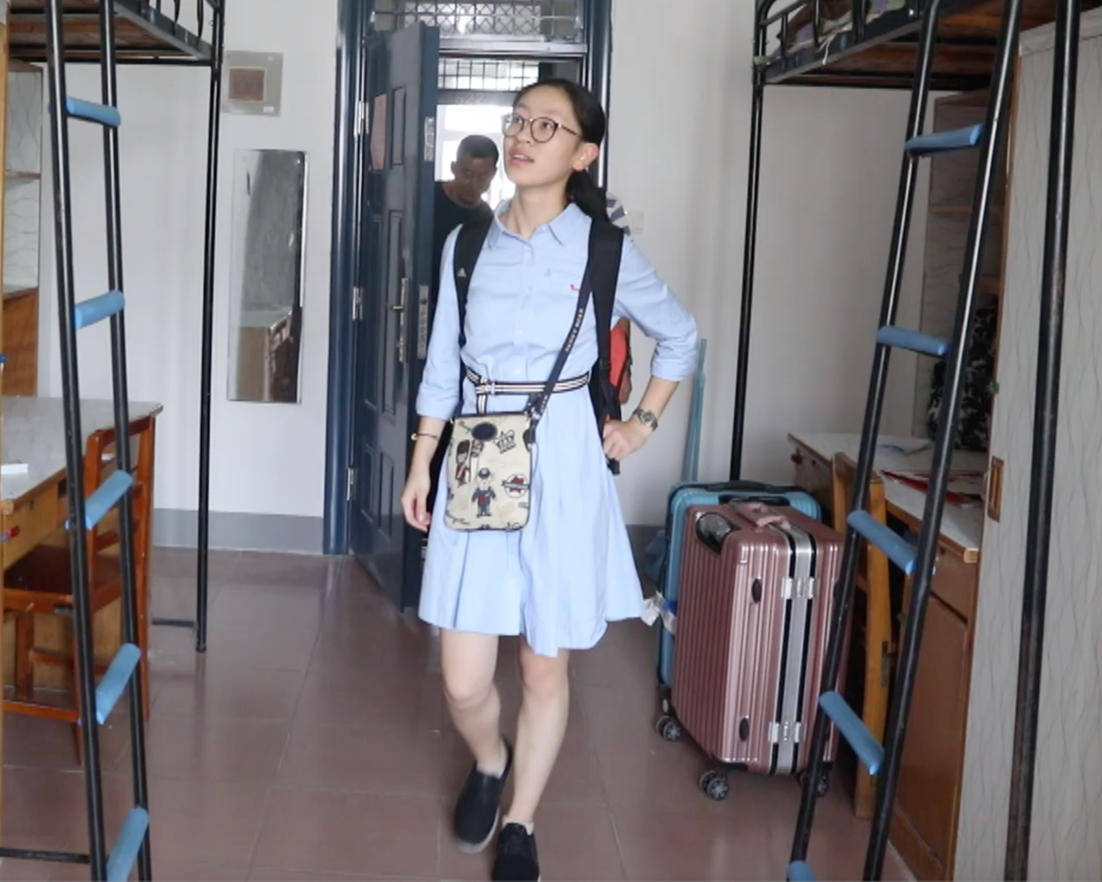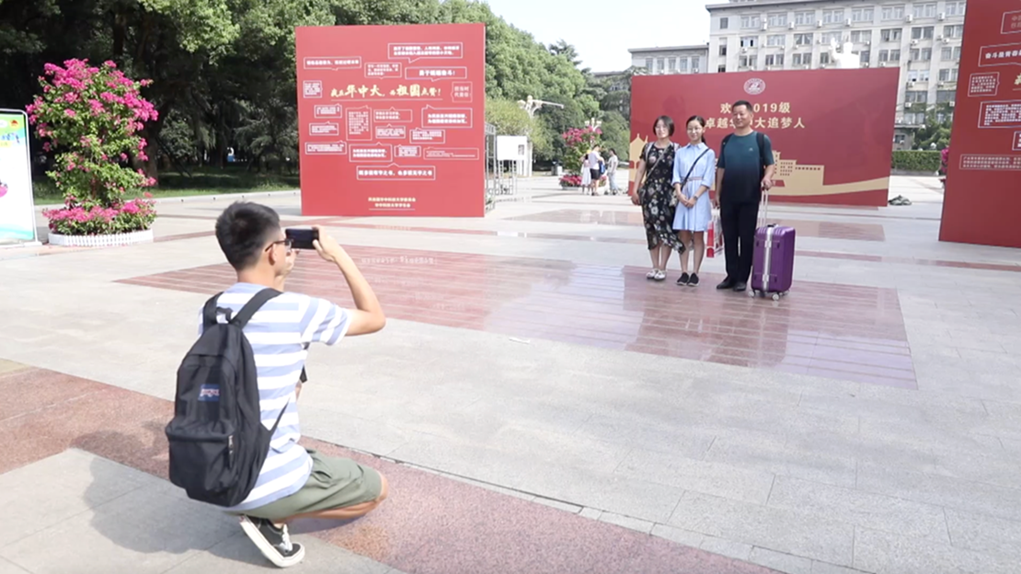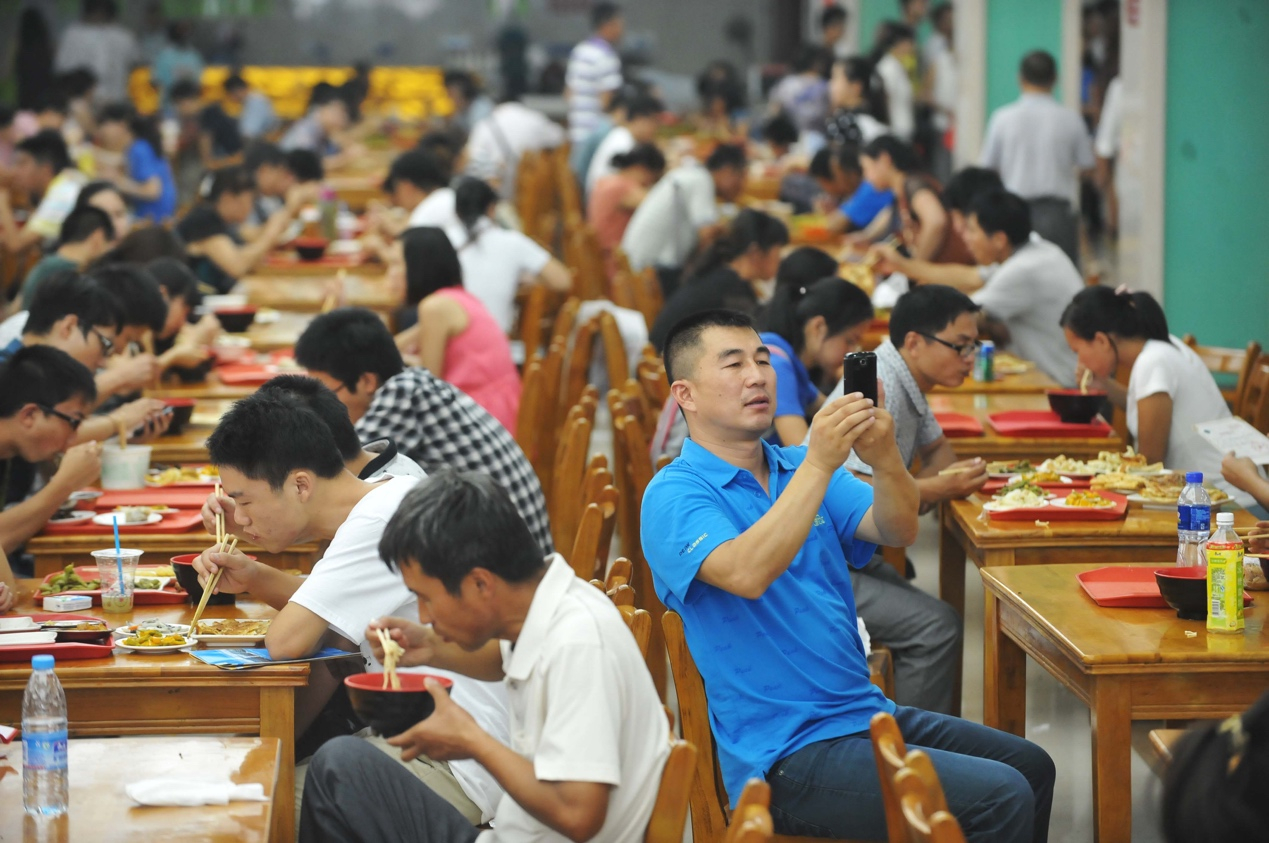03:19

College move-in day – the start of a new beginning for many.
For freshman Zhang Ruizhe, Huazhong University of Science and Technology is the school where she'll stay for eight years, until she earns a PhD. Zhang said she had wanted to be a doctor since she was young.
"College has abundant life. High school stifled me. College will be the place where I can pursue my dreams," she said.
Like many other families, Zhang's parents traveled with her to help out. Her father said the functionality and quality of college has changed compared to what he went through.
"The education method now is healthier and more mature. The school focuses on fostering students' manners and values," said Zhang's father Wenbo.

Zhang Ruizhe walks into her college dormitory room. /CGTN Photo
Zhang Ruizhe walks into her college dormitory room. /CGTN Photo
Orientation day was filled with lots of information about the campus, activities and facilities. To help newcomers quickly adapt, the school paired each student up with a senior volunteer.
"We call for a student-centered education. It reflects not only student services, but also classrooms and student management," said Yi Yuanxiang, Director of Student Affairs Office.
For decades, 'student-centered' was a concept rarely seen in Chinese education. It was a trend that some universities have shifted toward to better work with a more independent and confident student body. It was also a motivation to deepen the reform of talent cultivation after universities faced scarce resources two decades ago when China first opted for college expansion.
Before 1999, China's college admission rate was only about 30 percent, the nation followed a model of elite education. As schools became more inclusive, educators started exploring new teaching standards.

Zhang Ruizhe and her parents take photo at campus entrance. /CGTN Photo
Zhang Ruizhe and her parents take photo at campus entrance. /CGTN Photo
"Maybe we need to think about the quality, and what that quality is. It is how, and to what degree we meet society's expectations. The nation needs its people to have high education levels," said Shen Hong, Professor from Huazhong University of Science and Technology's School of Education.
"The more years of education (you receive), the better you understand the social changes, technology and people," Shen said.
Universal education has made campuses more diversified. More underprivileged students have gotten chances to participate. For many of them, college degrees are life-changing.
In some provinces, college admission rates in 2019 were as high as 90 percent. Zhang attends a first-tier university where she is among the top two percent.

Lunch with parents at orientation day at Huazhong University of Science and Technology. /VCG Photo
Lunch with parents at orientation day at Huazhong University of Science and Technology. /VCG Photo
Zhang said her dream is closer to coming true after studying diligently. Otherwise, she wouldn't be able to reach such a platform where she can work with the best group of teachers and peers.
In the next few years, what she'll gain in college is more than just professional knowledge.
"It will be an experience that teaches me how to merge into society, to live independently and to become a better person in general," Zhang said.
Zhang is not completely clear on the curriculum. It's the school's reputation that took her there, and she said there's much more to explore.